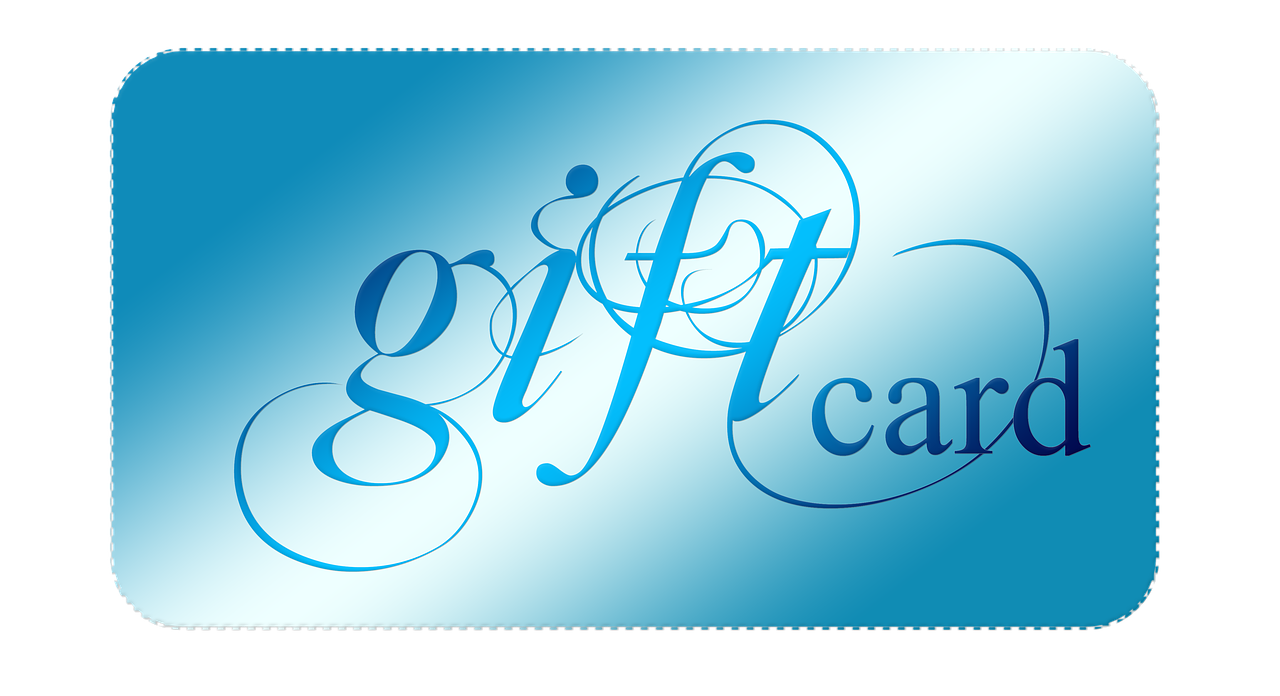Based on the current volatile environment, personal loans have inevitably become very useful and necessary tools for people who seek certain independence and financial support in different tasks. When you are borrowing money to pay off credit cards, establish an emergency fund, or fund a home renovation project, it is important to learn about all the possible ins and outs of a personal loan to be able to not only make wise choices but also safe financial choices.

Credit : Mikhail Nilov
Introduction
Personal loans can be described as an all-purpose financial tool which gives credit to the borrowers in the form of a single large sum that is to be repaid in regular periodic payments over a definite timeline. Personal loans are different from closed-end credits like home loans or car loans where the borrowed amount can be used purpose in the name of purchasing a home or a vehicle, but Personal loans are a general form of loan where people can spend the money in any lawful way they want.
A personal loan is defined as?
Most basically, a personal loan is an unsecured instalment loan for which consumers borrow cash by approaching organizations such as banks, credit unions or direct-approval internet-based organizations. Overfilled This type of loan is not secured, and eligibility and the rate of interest are based on the credit score of the borrower. Loan limits, interest rates and the period to be taken to refund the loan depend on the credit status of a user, his or her earnings, and employment history among other factors.
Types of Personal Loans
Secured Personal Loans
Secured personal loans involve the attachment of an asset that acts as security for the loan, which could be a savings account, certificate of deposit or real assets such as a car or other ornaments. Loan collateral makes it easier for the lender to recover his or her money in case the borrower defaults on the loan, hence it can attract relatively lower interest rates than the unsecured loans. For a borrower who fails to repay the loan, the creditor legally has the right to take back any property that was pledged as security.
Unsecured Personal Loans
As for the personal unsecured loans, no collateral is needed, unlike in the case of the secured ones. It is granted mainly depending on the credit history, as well as stability of income, and the level of debt to income. Due to the lack of security to provide cover for risks in case of default, lenders tend to charge a higher interest rate from the borrowers for unsecured loans.
Listening and Reading Comprehension – PAYDEX Score and Fixed-Rate Compared to Variable-Rate Personal Loans
Personal loans can have either fixed or variable interest rates:
● Fixed-Rate Personal Loans: These loans have fixed interest rates from the time they are given to the time they are fully repaid which gives the borrower equal monthly instalments. This stability helps in the planning for the repayment of loans because the expenses are easier to predict and plan for.
● Variable-Rate Personal Loans: Adjustable-rate mortgages have rates of interest that are flexible and can adjust periodically hence depending on the base rates in the market, for instance, the prime rates or the LIBOR. Another disadvantage of floating rate loans is the variable interest rates, although initially, they are lower than the fixed rate loans.
What Exactly is a Personal Loan?
Upon applying and acquiring a personal loan, the lending company releases the loan amount of money as a single amount in a debtor’s bank. You then pay back the loan within a given time, anywhere from one to seven years, in fixed monthly instalments. Each payment, which is called a ‘’payment instalment made of both principal (the cash borrowed), and interest accrued at the annual percentage rate (APR).
Below are some of the reasons that could necessitate one to take out a personal loan;
Personal loans are sought after for various reasons, including:
● Debt Consolidation: Debt consolidation specifically taking high-interest debts, for instance, credit card balances, and medical bills, among others into a particular loan, which has a lower interest rate helps in debt management besides lowering the total cost of borrowing.
● Home Improvements: Overcoming the issue of funding renovations or repairs which increase the property’s value as well as the living quality without using the HELOC or a home equity loan.
● Emergency Expenses: Meeting eventualities, including situations where one is faced with large uninsured car bills or hospital bills that cannot wait for savings to cater for them.
● Special Events: There may be some occasions such as weddings or any other major events in one’s life that may require financial escalation to celebrate; this is where the instalment payment method availed by personal loans is appealing.
About Personal Loan Application
Eligibility Criteria
To qualify for a personal loan, lenders typically assess the following criteria:
● Credit Score: A higher credit score means responsible borrowing hence you may get better rates on the borrowed funds. Each credit money lender has its set standard credit score, but the ideal credit score ranges from 600 and above.
● Income Verification: Lenders need to know that you will have the capacity to repay the loan and thus will ask you to provide them with proof of income. This may involve any of the following which may include recent pay cheques, tax records or bank statements.
● Employment History: When there is stability in the employment status of the borrower it means that the borrower has a regular income that will enable him to service the facility hence a reduced risk to the lender.
● Debt-to-Income Ratio: This particular ratio represents the total amount of debt that you are liable to pay to the total amount of gross income that you receive in a given month. A lower DTI is considered less risky, better than 36% allowing the customer to handle more liabilities effectively.
Documentation Required
When applying for a personal loan, gather the following documents to streamline the application process:
● Proof of Identity: Identification cards that are issued by the government including the state or national identification, international passport, or a driver’s license.
● Income Verification: Proof of income or Papers that indicate paycheck, wage slip, or salary slip that shows that one can repay the loan.
● Employment Details: Details of your current employer such as the name, address and phone number.
Application Process
An application for a Personal loan can be done through the Internet, through a phone conversation or physically, by visiting the financial provider’s branch. Once you have applied for credit, the lender will evaluate your financial data, along with running your credit check to determine your suitability for the credit offered according to their credit-granting standards. When you are approved for the loan, you will be presented with the terms of the loan including the total amount of the loan, rate of interest, procedure for repayment, and any additional charges that are to be made.
Understanding Interest Rates
Personal loan rates are flexible considering factors such as the ability and willingness of the borrower to repay plus the amount he or she wishes to borrow, the period for repayment, and whether the loan is a secured or an unsecured one. The common understanding is that the better the credit score, the better the interest rates as compared to a lower credit score that attracts high interest rates due to high risk. People should consider a comparison of tenders to get the most reasonable interest rate and the total cost of credit.
Repaying Your Loan
Monthly Payments
Personal loans are structured on a fixed monthly instalment and the loan is to be paid back with interest over the period agreed. Every instalment contains the initial sum borrowed (the principal) as well as the charges for using the money (interest). Since fixed monthly payments call for regular and predetermined instalment repayments, managing the payment is easier as you will not miss your monthly payment plan.
Early Repayment Options
Certain lenders provide their clients with the opportunity to pay back the money for the personal loan before the end of the agreed term, free of charge. Early repayment offers several advantages, including:
● Interest Savings: Prepaying the loan lowers the pay for interest on the credit over the agreed amount of time to repay the loan.
● Improved Credit Score: If a borrower repays the loan on time and even ‘pre-pay’ the loan before the due date, this will have a positive effect on the credit score that the borrower has.
● Financial Flexibility: To pay off a particular form of debt than the other, it is better to pay off the debt with a higher interest rate as this helps to unlock money for other uses or in case of any other emergency.
Advantages and Disadvantages of Taking a Personal Loan
Advantages
● Flexible Use: Personal loans can be taken for any legal purpose, and that makes them convenient to have.
● Structured Repayment: Easier to budget since the monthly payment that is paid to them is much fixed.
● Lower Rates for Secured Loans: Another benefit of secured personal loans is that more often than not, the interest rates are relatively low than the rates for unsecured loans.
Disadvantages
● Higher Rates for Unsecured Loans: This is mainly because there is no security given by the borrower to the lender as is the case of secured personal loans.
● Potential Fees: This is because, through origination fees, charges levied for payment beyond the due date and any prepayment penalties boost the country’s total.
● Impact on Credit: Defaulting on a personal loan or even paying a loan late is likely to pull down your credit rating and hence qualifying for future credit at cheaper rates will be a challenge.
Personal Loans vs. the other Financing Structures
When considering borrowing options, personal loans offer several advantages over alternative financing methods:
● Credit Cards: Personal loans are known to attract slightly lower interest rates than credit cards, thus making it cheaper to use this means for large purchases or to repay the credit card balance.
● Payday Loans: Thus, unlike payday loans whose term of repayment is based on the borrower’s payday and attract extremely high interest rates, personal loans allow for longer periods of loan repayment as well as reasonable interest rates.
Personal Loan Myths Debunked
Common misconceptions about personal loans include:
● High Interest Rates for Everyone: As with interest rates, there is relative and absolute flexibility on personal loans; customers with good credit scores can find reasonable interest rates which make the loans cheap.
● Negative Impact on Credit Scores: A personal loan is quite helpful in elevating the credit score if properly managed since it clearly shows that one can manage loans.
Knowing the facts regarding these misconceptions can help borrowers fight the fallacies to make conscious decisions that best suit their needs.
The basic yet critical advice That Every Personal Loan Consumer Should Try
Using Personal Loans Wisely
● Borrow Responsibly: This means that one should only borrow what they cannot afford and ensure that they have the ability to pay it back as from the current cash flow status.
● Compare Offers: This way, you will have to compare various interest rates provided, terms, and the fees charged by different lenders, and pick the most suitable offer.
● Read the Fine Print: Always, read every part of the loan agreement carefully so that it is easy to see the costs of using the loan, the repayment plan, and what happens to a borrower who fails to meet the obligations as required.
Avoiding Common Pitfalls
● Missing Payments: Paying for the bill often has a due date which is important to meet to keep a good credit score or else attract penalty fees.
● Overborrowing: It is advisable not to borrow more than required in order not to put pressure on one’s cash flow and negative balance on the loan.
● Ignoring Fees: These will include the origination fee, the late payment fees and other fees such as prepayment penalties.
Personal Loans and Your Credit Rating
If a person can manage a personal loan properly, then this can be seen as positive, in terms of maintaining and indeed improving a person’s credit score. Being punctual in the payments and paying off the loan in an agreed manner can go a long way to boosting one’s creditworthiness. On the other hand, late payments or defaults entail a downgrading of your credit status which in turn makes it difficult to obtain new credits at preferred rates.
Personal Loan Calculator
Before taking out a personal loan, use online calculators to estimate:
● Monthly Payments: Determine the expected monthly payment you are going to make for the loan amount considering the interest rate and the repayment period.
● Total Interest Costs: Always you should estimate the total interest charged on your loan to determine the total cost of the loan.
● Repayment Timeline: If the loan has been structured to be paid back in instalments, then estimate the period that will be required to repay the loan and then plan for it.
The use of a personal loan calculator is very useful to anyone involved in borrowing money to avoid probable outcomes in the future.
Conclusion
Since personal loans are known to have quite several benefits due to their flexibility, convenience, and structured repayment methods, such forms of credit instruments turn out to be very useful to individuals in their financial lives. Learning the general and specific personal loans how to apply for them and the dos and don’ts of taking personal loans will enable one to master the art of borrowing and thus meet one’s financial goals.
Like any form of credit, it’s always wise to first check your requirements, compare the available personal loans and their terms, and the future repercussions of taking the loan as well. And, knowing that you’re a smart borrower who understands both the little heavy work and the big distant dreams, a personal loan can be a fantastic planning instrument with good personal management.
FAQs
What credit score is needed for a personal loan approval?
A credit score of 600 or higher is typically recommended to qualify for a personal loan, though specific requirements may vary by lender and loan type.
Can I use a personal loan for debt consolidation?
Yes, personal loans are commonly used to consolidate high-interest debts into a single loan with a lower interest rate, making debt repayment more manageable.
Are there fees associated with personal loans?
Yes, personal loans may come with origination fees, late payment fees, and prepayment penalties. It’s essential to review the loan terms carefully to understand all potential fees.
How long does it take to receive funds after a personal loan approval?
After approval, funds are usually disbursed within a few business days, though some lenders may offer expedited disbursement options.
What happens if I can’t make my personal loan payments?
If you anticipate difficulty making payments, contact your lender immediately to discuss options such as payment arrangements or loan modification to avoid defaulting on the loan.








